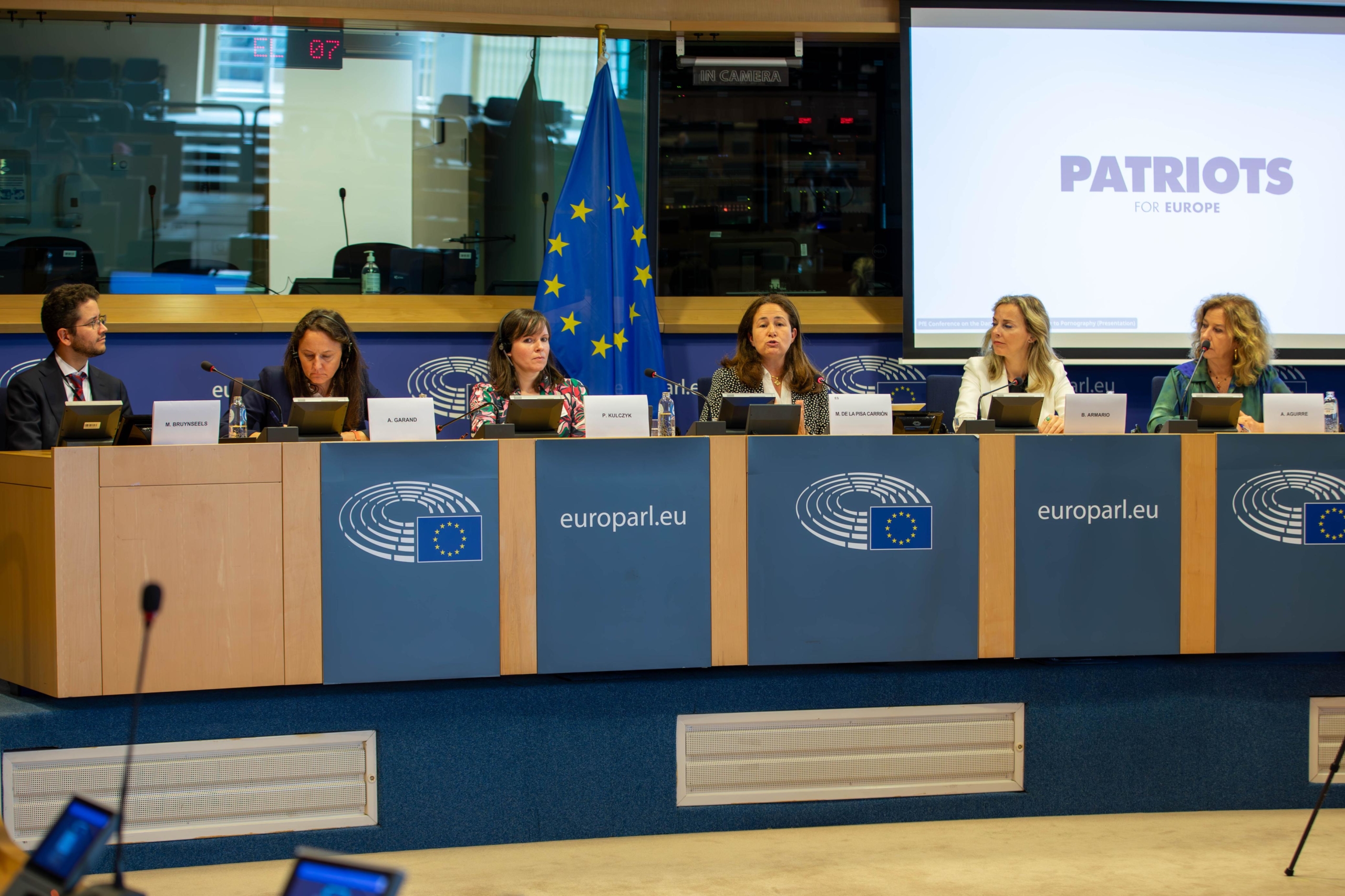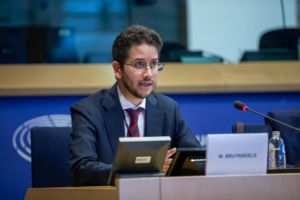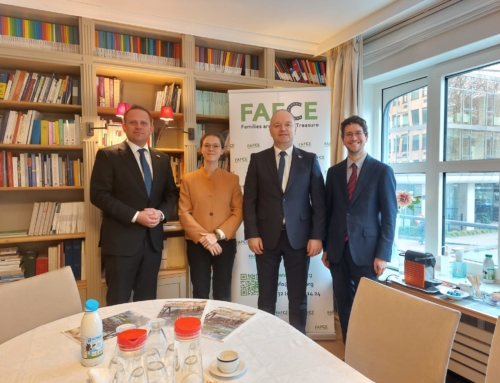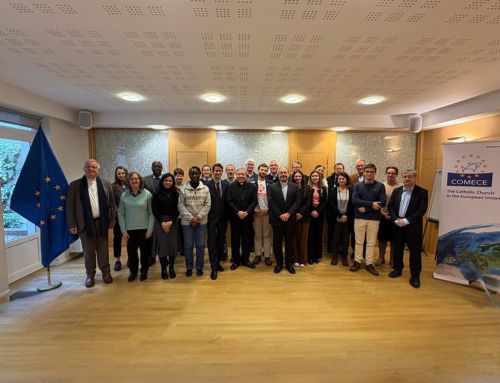Brussels, 10 June 2025
FAFCE was invited to speak at the event hosted by MEP Margarita de la Pisa (PfE, Spain) at the European Parliament in Brussels on Child exposure to pornography.
The title of the event was “Child exposure to pornography: a form of Sexual Abuse ?”
The aim of this high-level conference was to bring together policymakers, child protection advocates, legal experts, mental health professionals and civil society representatives , in order to foster a meaningful and informed dialogue. Discussions have focused on prevention strategies, public awareness, legal responses, and whether such exposure should be recognized as a form of child sexual abuse. Together, all actors wanted to promote collective action and shape a safer digital environment for children across Europe.
The introduction was given the hosting MEP, Mrs. Margarita de la Pisa Carrión, who is MEP from Spain and member of the Parliamentary Committee on Public Health.
Experts have given insights into how early exposure to pornographic material impacts cognitive, emotional, and social development.
FAFCE Director of EU Advocacy Matthieu Bruynseels spoke about the EU approach of exposure to pornography, especially through the Digital Service Act.
Altough the European Union demonstrated for the past years its commitment to ensure a better internet for children, with the EU Strategy on the Rights of the Child and the EU Strategy for a Better Internet for Children (BIK+), the also EU acknowledged that “age-verification mechanisms and parental consent tools are still ineffective.
The Digital Services Act is a Regulation adopted on April 2022. It oblige by 2024 online platforms to “identify, analyse and assess the “intentional manipulation of their service” when it comes to “an actual or foreseeable negative effect on the protection of public health and minors”.(Article 24 1. (c) of the Regulation proposal).
For many months, the European Commission waited before naming the pornographic websites as the big plateforms.
But very recently (27th May), the Commission opened investigations to safeguard minors from pornographic content under the Digital Services Act. Formal proceedings against four websites are then currently conducted for suspected breaches of the DSA. The DSA represents a major step into the responsabilisation of the platforms. Now the European Commission preliminarily inquiry will examine if the platforms do comply with putting in place:
– an appropriate and proportionate measures to ensure a high level of privacy, safety and security for minors, particularly regarding the age verification tools to safeguard minors from adult content ;
– the risk assessment and mitigation measures of any negative effects on the rights of the child, the mental and physical well-being of users, and to prevent minors from accessing adult content, notably via appropriate age verification tools.
A few days later, the European Parliament gathered in Strasbourg voted to force pornographic websites to use effective age-verification tools to protect minors. A parliamentary amendement to CSAM Directive was added, reading : “Disseminating pornographic content online without putting in place robust and effective age verification tools to effectively prevent children from accessing pornographic content online shall be punishable by a maximum term of imprisonment of at least 1 year.”
Should the Council of the EU keep this part, it would be a major victory to protect children from pornographic platforms. Under the new Directive, websites with harmful content will have to effectively prevent minors from accessing this content, an effectivity wich is currently lacking.









